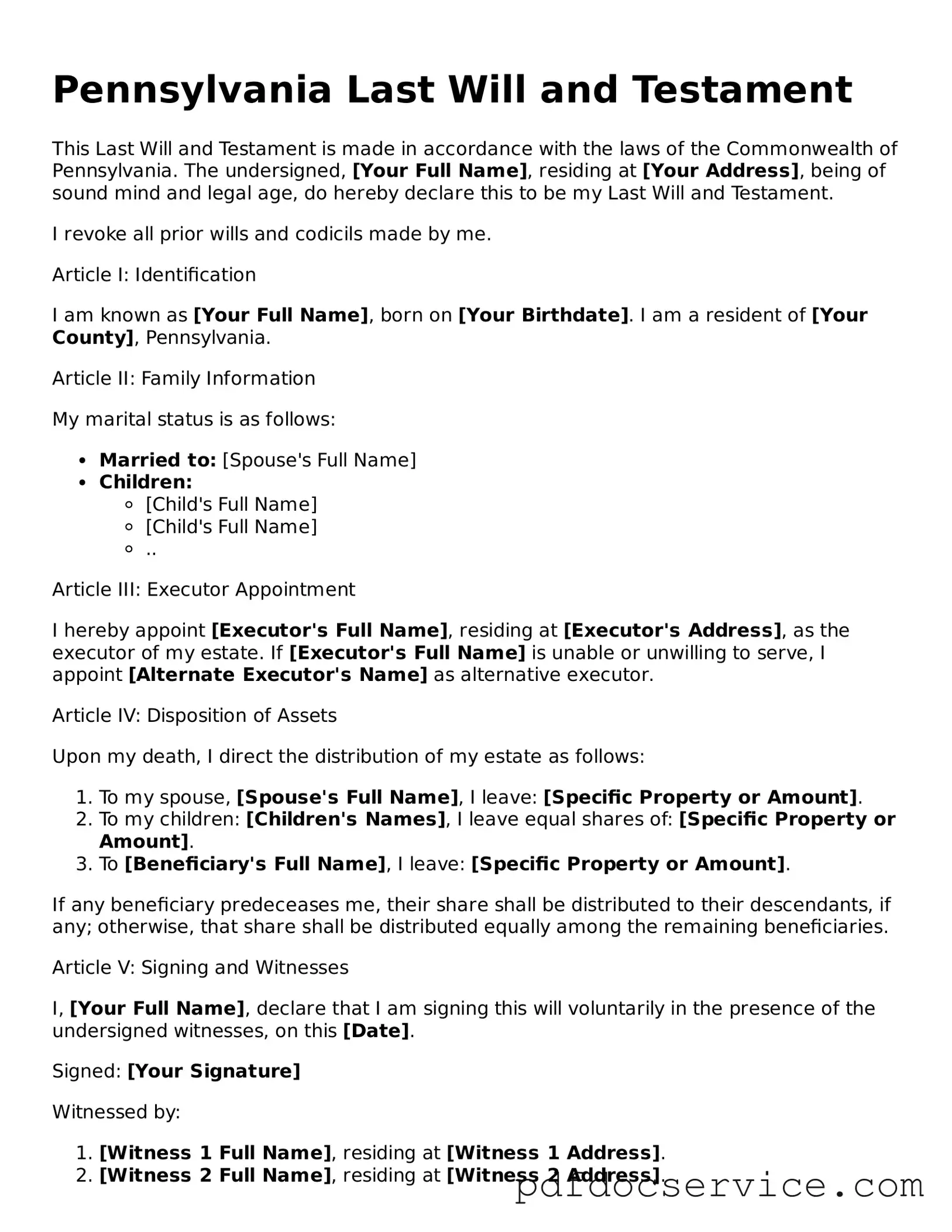What is a Last Will and Testament in Pennsylvania?
A Last Will and Testament is a legal document that outlines how a person's assets and affairs should be handled after their death. In Pennsylvania, this document allows individuals to specify who will inherit their property, name guardians for minor children, and appoint an executor to manage the estate. It is an essential tool for ensuring that one's wishes are honored and can help prevent disputes among family members.
Who can create a Last Will and Testament in Pennsylvania?
In Pennsylvania, any person who is at least 18 years old and of sound mind can create a Last Will and Testament. This means the individual must understand the nature of the document and the consequences of their decisions. It is important for the will-maker to be clear about their intentions and able to make decisions regarding their estate.
What are the requirements for a valid will in Pennsylvania?
To ensure a Last Will and Testament is valid in Pennsylvania, it must meet several requirements:
-
The will must be in writing.
-
The person creating the will must sign it at the end.
-
The will must be witnessed by at least two individuals who are not beneficiaries of the will.
These witnesses must also sign the document, affirming that they observed the will-maker sign the will. It is advisable to have witnesses who are not related to the will-maker to avoid potential conflicts of interest.
Can I change my will after it is created?
Yes, you can change your will at any time while you are still alive and of sound mind. This is often done through a document called a codicil, which amends specific parts of the original will. Alternatively, you can create a new will that revokes the previous one. It is essential to follow the same legal requirements for signing and witnessing when making changes to ensure the new or amended will is valid.
What happens if I die without a will in Pennsylvania?
If a person dies without a will, they are considered to have died "intestate." In this case, Pennsylvania law determines how the deceased's assets will be distributed. The state has a specific hierarchy for inheritance, which generally favors spouses, children, and other close relatives. However, dying intestate can lead to outcomes that may not align with the deceased's wishes, making it crucial to create a will to avoid such situations.
How can I ensure my will is properly executed?
To ensure that your will is properly executed, consider the following steps:
-
Consult with an attorney who specializes in estate planning to help draft your will.
-
Ensure that you have the required number of witnesses present when you sign the will.
-
Store the original will in a safe place, such as a safe deposit box or with your attorney.
-
Inform your executor and family members about the location of the will.
Taking these steps can help ensure that your will is valid and can be easily located when needed.
Is it necessary to hire a lawyer to create a will in Pennsylvania?
While it is not legally required to hire a lawyer to create a will in Pennsylvania, it is highly recommended. An attorney can provide valuable guidance on the legal requirements and help ensure that your wishes are clearly articulated and enforceable. They can also assist in addressing complex family situations, tax implications, and other considerations that may arise. If you choose to create a will without legal assistance, be sure to thoroughly research the requirements to avoid potential pitfalls.

